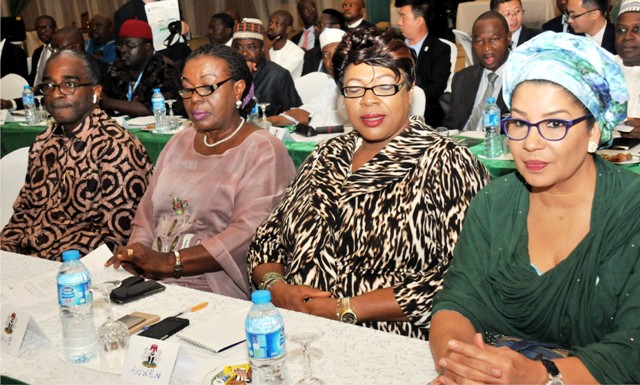Business
CBN Assures On Interest Rates Reduction

The Governor of Central Bank of Nigeria (CBN), Mr Godwin Emefiele September 11, last Wednesday, said that the bank would continue to explore further avenues to ensure that interest rates were supportive of domestic production needs.
Emefiele said this while delivering a keynote address at the 24th edition of the CBN annual seminar for finance correspondents and business editors in Awka.
The theme of the seminar is “Import Substitution and the Dynamics of Interest and Exchange Rates Management in Nigeria”.
Emefiele, represented by Acting Director, Corporate Communications Department, Mr Issac Okorafor, said CBN would also continually fine tune measures to ensure and guarantee a stable exchange rate regime.
With on-going recovery in economic performance, he said the CBN would record improved outcomes in its effort towards taming inflation, reducing interest rates and guaranteeing exchange rate stability.
The governor added that the bank was consistently devising ingenious approaches to solve the country’s peculiar challenges and would continue to learn from the experiences of other countries, particularly developing nations.
Emefiele noted that the bank had consistently sought to formulate interest and exchange rate policies that were conducive to the development of domestic private industrial activities.
According to him, the CBN is also taking due cognisance of other macroeconomic variables.
The governor said the bank had identified structurally-induced inflation as a dilemma to policy makers on whether to align the rates with socially desired or policy consistent outcomes.
On mitigating the challenge, Emefiele said that CBN had embarked on massive monetary stimulus through direct interventions in sectors holding immense benefits for the broader economy.
“Such interventions have been in agriculture Micro, Medium and Small scale Enterprises (MSMEs), power sector, aviation and youth entrepreneurship, among others.
“These measures were necessitated by the liquidity and credit crunch that followed the global financial crises,” he said.
He said the bank had recognised that there was need for administrative measures to reduce imports.
Emefiele, however, said that the measures might not be compatible with current trends in economic management that leaned towards free markets.
He said that while those might not be completely dismissed, the fundamentals of the domestic environment needed to be promoted to support domestic production and curtail imports.
“The CBN recognises these challenges in its role, provide economic advice and support the Federal Government’s aspirations on economic growth and development.
“Within the core remit of formulating and implementing monetary policy, the interest and exchange rates serve as major instruments for CBN’s support for import substitution,” he said.
The governor noted that fundamentals of the domestic environment needed to be promoted to support domestic production and invariably curtail imports.
“First, interest rates are a major incentive or disincentive to carry on industrial production activities.
“They are the key price for capital and largely determine the ability to engage in profitable domestic economic ventures.
“Economic theory dictates that low interest rate will boost incentives to procure loans to engage in production, and vice versa.”
The governor, therefore, said it was imperative that authorities should endeavour to keep interest rates at reasonably low levels, saying the rate of inflation was a major determinant of the level of interest rates.
Business
Two Federal Agencies Enter Pack On Expansion, Sustainable Electricity In Niger Delta

Business
Why The AI Boom May Extend The Reign Of Natural Gas

Business
Ogun To Join Oil-Producing States ……..As NNPCL Kicks Off Commercial Oil Production At Eba

-

 Politics5 days ago
Politics5 days agoAPC Releases Adjusted Timetable For Nationwide Congresses, Convention
-

 Sports1 day ago
Sports1 day ago2026 WC: Nigeria, DR Congo Awaits FIFA Verdict Today
-
Sports4 days ago
DG NIS Wants NSC Board Constituted, Seeks Increased In Funding
-

 Business4 days ago
Business4 days agoCustoms Seek Support To Curb Smuggling In Ogun
-

 Featured4 days ago
Featured4 days agoINEC Proposes N873.78bn For 2027 Elections, N171bn For 2026 Operations
-

 Sports4 days ago
Sports4 days agoSWAN Rivers Set-up Five Functional Committees
-
Sports4 days ago
NSC Disburses N200m Training Grants To 26 Athletes
-
Sports4 days ago
‘NTF Will Build On Davis Cup Success For Brighter Future’

